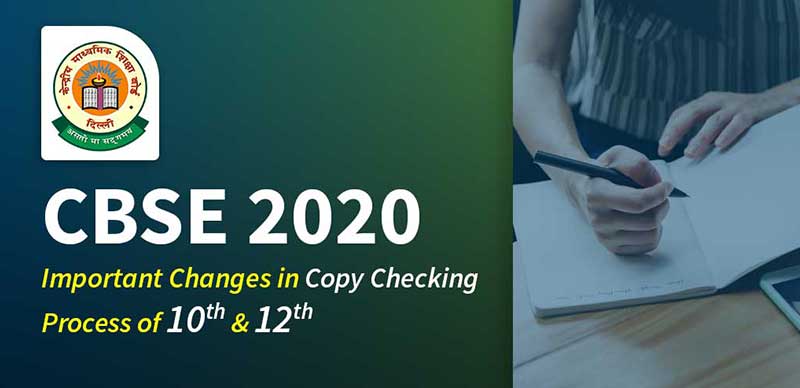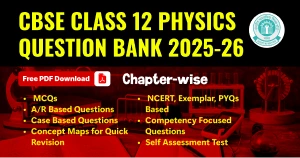
SHARING IS CARING
If our Website helped you a little, then kindly spread our voice using Social Networks. Spread our word to your readers, friends, teachers, students & all those close ones who deserve to know what you know now.
CBSE 2020: Important Changes in Copy Checking Process of 10th & 12th
The Central Board of Secondary Education (CBSE) has made several changes in copy checking process of CBSE answer booklets to reduce error and to improve the accuracy of the CBSE result. These rules are to be followed from this session onwards
An evaluator needs to evaluate 20 answer booklet of the main subjects instead of the current 25
Currently, an invigilator needs to check at least 25 answer booklets but now they need to check 20 copies only.While talking to media, Sanyam Bhardwaj, controller of examinations, CBSE said that the move is to make the evaluation process smoother, transparent & error-free. If evaluators need to check lesser copies then this will reduce the burden on them.
An evaluator or additional head examine has to supervise correct evaluation of 80 copies per day instead of the current 100
As the numbers of answer booklets reduced to 20 copies a day, now, one examiner or additional head examiner (AHE ) has to ensure correct evaluation of 80 answer booklets per day instead of the current 100.
Earlier, one evaluator evaluates 25 answer booklets of main subjects like Mathematics, Physics, Biology, etc. As the evaluation is done, the evaluators interchange the answer booklets to ensure that no mistakes have been ignored. So basically, during the evaluation, one examiner or AHE manages four evaluators, who have to check 100 copies in a day.
Increase in the number of evaluation centres
"This year, we increased the number of evaluation centres by 40. We had 140 evaluation centres across India as opposed to 100 last year," said Sanyam Bharadwaj. He further added that as many as 1.3 lakh evaluators were appointed in the paper-checking process of CBSE 2019 exams.
He also said, "During the revaluation process this year, we observed that in comparison to 2018, the magnitude of mistakes and the variation of marks were reduced as the evaluators were less burdened,".







 Profile
Profile Signout
Signout














 Quiz
Quiz
 Get latest Exam Updates
Get latest Exam Updates 










